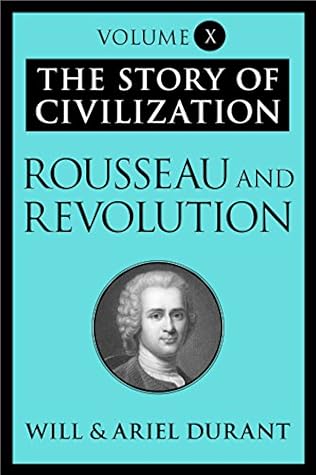Kindle Notes & Highlights
“Be my brother or I’ll kill you.”
“I go at last out of this world, where the heart must break or make itself bronze
“Who can assure us that a like desolation will not one day be the lot of our country?”
“the Rousseau of the gutter” and “the Voltaire of the chambermaids”;
He berated Rousseau for having unleashed the passions of the young, the ignorant, and the sentimental. “It is Émile that has brought us this arrogant generation, stubborn and insolent and willful, which speaks loudly, and silences the elderly.”
the clever Frenchman was defeated by mañana.
“I was born to be a courtier,” he tells Suzanne; and when she supposes this “is a difficult art,” he replies, “Not át all. To receive, to take, to ask—behold the secret in three words.”
As for me, I want to know why I am furious.”
Seldom even in French history had a man led so full and varied and adventurous a life.
The most remarkable feature of the French nobility was its acknowledgment of guilt.
I notice that a breed of good hunting dogs is preserved, but once it deteriorates it is done away with.
The nobles threw the first spadeful of earth that dug their grave.
Every war made the state more dependent upon the financiers, and made the financiers more vitally concerned with the policy and solvency of the state. Some bankers enjoyed a personal credit superior to that of the government; hence they could borrow at a low rate, lend to the government at a higher rate, and increase their wealth merely by bookkeeping—provided their judgment was good and the state paid its debts.
The middle classes did not wish to overthrow the monarchy, but they aspired to control it.
The essence of the French Revolution was the overthrow of the nobility and the clergy by a bourgeoisie using the discontent of peasants to destroy feudalism, and the discontent of urban masses to neutralize the armies of the king.
The Revolution was due not to the patient poverty of the peasants but to the endangered wealth of the middle class.
All these revolutionary forces were subject to the influence of ideas, and used them to clothe and warm desires.
So, as with most pivotal events in history, a hundred diverse forces converged to produce the French Revolution.
Kings rule either by conquest or by law. … The nation asks from his Majesty the greatest good that a king can give to his subjects—liberty.”
Hunger was even more eloquent than words.


